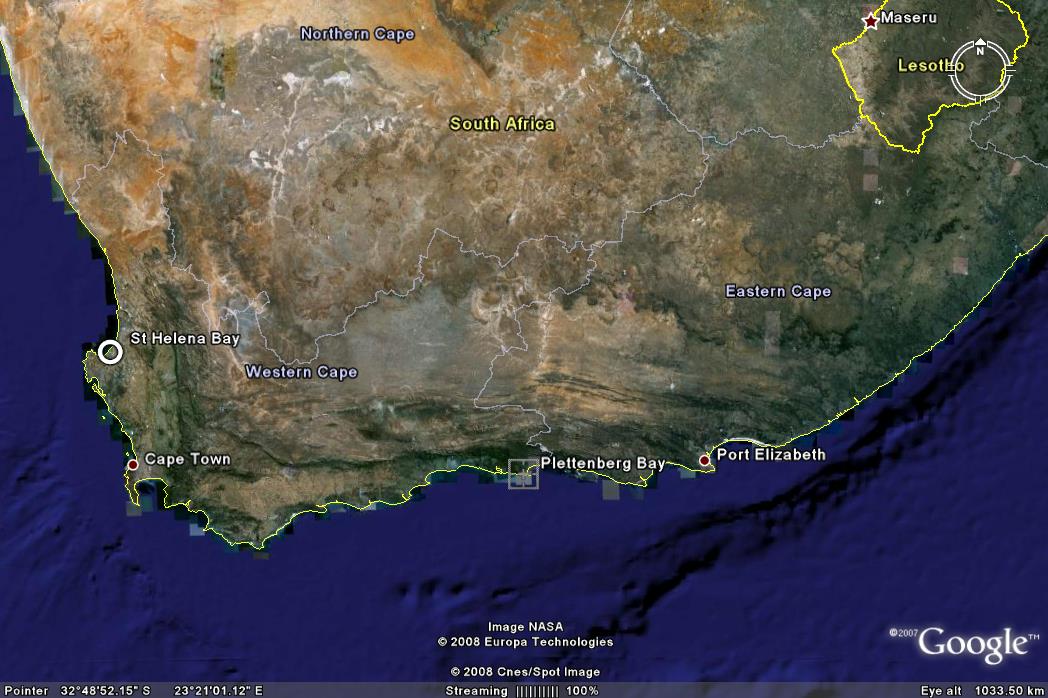30 August 2008
Submarine landslide in southern Africa?
Posted by Dave Petley
The award for the strangest landslide story of the week goes to this one, from southern Africa. Late last week reports started to emerge of strange tidal patterns around the southern Cape of Africa (Fig. 1).
 Fig. 1: Google Earth image of the southern Cape of Africa, showing the location of St Helena Bay and Plattenburg Bay.
Fig. 1: Google Earth image of the southern Cape of Africa, showing the location of St Helena Bay and Plattenburg Bay. In particular, on 21st August at about 8:45 am (local time) a series of tidal oscillations were recorded in St Helena Bay (Fig. 2). These tidal oscillations were reportedly large enough to damage some factories, pull a car into the sea and to cause problems for boats navigating into the harbours. A couple of days later, a report emerged from the National Sea Rescue Institute (NRSI) suggesting that the “mini-tsunami” was caused by a seismically-induced submarine landslide. Fig. 2 shows that some anomalous tidal activity certainly did occur.
 Fig. 2: Tide gauge data for Port Nolloth showing the anomalous behaviour on the morning of 21st August 2008 (graph from the South African Weather Service).
Fig. 2: Tide gauge data for Port Nolloth showing the anomalous behaviour on the morning of 21st August 2008 (graph from the South African Weather Service).
In the last couple of days a more considered analysis from NSRI has been reported, recognising that the cause is more likely to be meteorological than the effects of a landslide. The South African Weather Service have proposed that atmospheric gravity waves might have been the cause, although they are sitting on the fence a little.
Whilst these tidal oscillations are clearly strange, a landslide cause does not really seem to be very likely.


 Dave Petley is the Vice-Chancellor of the University of Hull in the United Kingdom. His blog provides commentary and analysis of landslide events occurring worldwide, including the landslides themselves, latest research, and conferences and meetings.
Dave Petley is the Vice-Chancellor of the University of Hull in the United Kingdom. His blog provides commentary and analysis of landslide events occurring worldwide, including the landslides themselves, latest research, and conferences and meetings.
I see your post is dated 30August, just the next day some seriously bad weather hit the west coast and in my town, Port Nolloth, we had boats littering the beach.